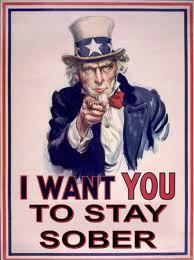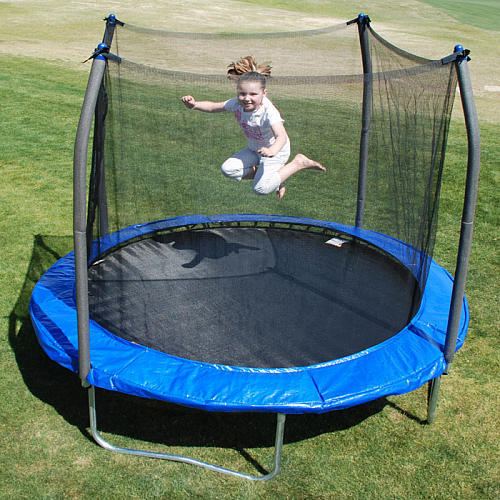Julie A. Fast's Blog, page 47
August 21, 2014
My Bp Magazine Blog: An Interview with Sherry Joiner. What is the Difference between Bipolar Disorder and Schizo-affective Disorder?
Do you know the difference between bipolar disorder and schizo-affective disorder?
I interviewed Sherry Joiner, the author of Sherry Goes Sane: Living a Life with Schizo Affective Disorder and asked her to explain the difference and tell us more about her life with the illness.
Sherry and I met at a writer’s meeting many years ago. She told me she wanted to write a book about living with schizoaffective disorder. Years later I spoke at a bipolar disorder support group. I looked up and there she was. She said, “Guess what Julie! I wrote my book!” We are now close friends. I asked her about the differences between schizo affective disorder and bipolar disorder in part one of our interview.
Click here to visit the BP Magazine blog and read more!
Related posts:
Guest Blogger: Sherry Joiner author of Sherry Goes Sane: Living a Life with Schizoaffective Disorder
Book contest with Sherry Joiner author of Sherry Goes Sane: Living a Life with Schizoaffective Disorder
What is the Difference between Bipolar Disorder and Schizoaffective Disorder?
August 19, 2014
What the BipolarHappens.com Blog is… and What the BipolarHappens.com Blog isn’t…
 Why has the internet become a place where we think it’s ok to write inflammatory comments as though there is not another human being on the other side who will read them, take them in and have to answer them?
Why has the internet become a place where we think it’s ok to write inflammatory comments as though there is not another human being on the other side who will read them, take them in and have to answer them?
It’s a two way interaction. I have read every comment on this blog for 10 years- and most have been insightful and thoughtful. Then there are those that are accusatory and inflammatory. I used to just post them and let readers decide to listen or not, but something in me has changed. I realize that we need to take more responsibility for what we write on the web and for making sure we stop others who attack people for their mental health opinions.
This is a mental health site that focuses on bipolar disorder and depression, though it also talks about mental health disorders in general in many posts. It’s for anyone affected by bipolar disorder including those with the illness and those who care about someone with bipolar disorder including health care professionals.
I will post any and all comments that state opinions different from my own- that is the spice of life!
But if there is a comment that gets accusatory or too personal- I will address this when I post the comment. You can see I have done so in the last few minutes under my most recent post comments.
I live with this illness 24 hours a day- yes- I wake up with it in the middle of the night just like many of us do. I am affected by what people say and can usually brush it off- as I have done since starting BipolarHappens.com in 2002. But I will not- and nor should you tolerate attacks on myself or my readers. (Or on anything you post on the site.) It’s time for us to take back control of our websites and encourage constructive criticism and lively discussion. This is a site for those who want to learn more about bipolar disorder, read more about my life and the lives of others affected by the illness and discover what treatments and management plans are available in my books. I also support the work of others as you can see in the wonderful guest blog section.
But from this moment forward, he Bipolar Happens.com blog will be devoted to the positive, lively and educational promotion of information on this illness- that the reader can then choose to use or pass by.
I live with bipolar every day- maybe you do as well. We need a place to go for hope, healing and fun stories amidst all the turmoil this illness can bring.
I hope you enjoy the website and always feel free to leave your opinion in the spirit of change, growth and understanding!
Cheers!
Julie
Related posts:
bipolarhappens.com blog reader comments
BipolarHappens.com Blog: A Welcome to New Blog Visitors
BipolarHappens.com Blog Notes
Bipolar disorder… tips for making it through the tough days.
 Oh boy can this illness make a person feel sick. That is just a fact. I guess you can change that sentence around- We can all get sick and tired of having this illness. One thing I want to do on this blog is to encourage people to keep going and going even when the days are really tough. One good thing about bipolar disorder is that it’s episodic- that means mood swings end. You can get better. Sometimes it takes longer than expected- but life can be stable.
Oh boy can this illness make a person feel sick. That is just a fact. I guess you can change that sentence around- We can all get sick and tired of having this illness. One thing I want to do on this blog is to encourage people to keep going and going even when the days are really tough. One good thing about bipolar disorder is that it’s episodic- that means mood swings end. You can get better. Sometimes it takes longer than expected- but life can be stable.
I talk a lot about depression as that is what I experience the most- some of my friends talk more about the agitated mania or the psychosis they live with, sometimes for a long stretch of time. I have a friend who has the type of bipolar disorder that is 90% mania. It truly is a spectrum!
Today is a good day because I can get work done- today is a good day becuase I have an appointment with Julie Foster, my excellent nurse practitioner. We are going to tackle my latest sleeping issues. Today is a good day because I’m out and about and I get to do my coaching calls tonight. By the way, I’ve been depressed for a few days, so finding the positives isn’t easy.
It’s important to focus on the good stuff on the days when you’re having a hard time- even if it’s only the small things!
Julie
PS: At least there isn’t a goat in your kitchen! HEHE
Related posts:
Bipolar Disorder Sick Days
Do you take bipolar disorder sick days? I do!
Bipolar Disorder and Work: Why can I work some days and then some days are so hard?
August 16, 2014
Do you Have a Child with Bipolar Disorder? Here is a must read article for parents of children with bipolar disorder
Bipolar disorder changes a child’s behavior and
this changes your entire family.
Parents often take in an adult child with bipolar disorder and provide a safe environment but the child is not always cooperative. Chaos can be the result. If you are in this situation The High Jacked House article is for you. Simply click on the link below. It will pop up a PDF file that you can then save to your computer. Feel free to use this article to educate anyone in the family as well as health care professionals. I’ve learned a lot during my years as a family coach. This article reflects the patterns I see in many households. I know you will find it interesting!
Julie
The High Jacked House by Julie A. Fast
Related posts:
Relief for Parents
Sold out: Group Coaching Calls for Parents of Children with Bipolar Disorder
Are you a parent of a child with bipolar disorder?
August 14, 2014
Radio interview with Rock and Roll Stations- what a difference in our mental health stations!
You are going to love this interview! Here’s a radio chat interview I did with the Moose Morning Show on Robin Williams. I’m trying to be balanced when talking about Robin Williams and suicide. I want to respect his memory and help others with depression and bipolar disorder find stability during a tough week.
Lazer 103.3/KAZR-FM’
Twitter: @Lazermoose
Yes. A rock station talking about mental illness. I was SO impressed with their questions and their commitment to fair reporting of mental illness. Wow! Kidos! Julie
Related posts:
Get it Done When You’re Depressed Radio/Podcast Interview
Robin Williams
Radio Show Press Release
August 11, 2014
Robin Williams
Robin Williams has died from apparent suicide. This is a tough one. For ALL of us in the mental health world. Let’s keep perspective. This is a tragedy, but depression has symptoms and suicide is one of them. Most of us have been there. His pain was stronger than his ability to see any hope in the future. It’s what depression does to all of us. This is NO different than his dying from another illness such as cancer.
I ask that all of us who have or care about someone with a mental health disorder pass on the information that suicide is not shameful. It’s not a dirty word. It’s the outcome of an illness. Rest in peace Robin. We have been there and some of us make it out and some of us don’t.
If you were already down and you heard this news, remember the mantra.. Mental health disorders are illnesses. We can get help. Reach out to someone right now if you need help. His death is not a sign that we need to be more depressed. It’s a sign that we need to get help if we are depressed.
I will now follow my own advice and turn off the internet and take care of myself.
Julie
PS: You can read more thoughts and comments on my Facebook Page at Julie A. Fast.
Related posts:
Bipolar Depression and Suicide Help
Guest Post: Craig Hamilton part 2 of 3
Football Players, Depression and Bipolar Disorder
August 7, 2014
Upcoming BP Magazine Blog. Partner of a Person with Bipolar Disorder? There is hope. There is help.. even in the most desperate situations.
 Hi Guys- I originally posted this for the blog, but realized it was so good it needed to go on my BP Magazine blog, so it will be up soon and I will post the BP Mag link here. I can offer some tips now if you are a partner of someone with bipolar disorder who drinks- to hold you over until the blog is posted!
Hi Guys- I originally posted this for the blog, but realized it was so good it needed to go on my BP Magazine blog, so it will be up soon and I will post the BP Mag link here. I can offer some tips now if you are a partner of someone with bipolar disorder who drinks- to hold you over until the blog is posted!
1. Create an alcohol free zone in the house. It’s easy for the person with bipolar to take over the house when they get drunk. If you make it a rule that they can only drink in the garage or the back yard for example, it frees up your house which in turn frees up your mind so that you can think of how to handle the problem. This may seem silly, but I assure you it works. I’ve had many clients create an alcohol free zone in their house and the person with bipolar listens. I think it’s because the partner isn’t saying- you can’t drink at all- but is instead saying- I don’t like you drinking in OUR home and until you deal with the drinking, you can take it outside. It works! When I’m coaching a partner, I help them create the exact script to use when bringing up the topic.
2. If a person is on meds, one way to get them to drink less is to discuss how the alcohol affects the drug’s efficacy. Once again, this may sound obvious, but many don’t think of how drinking interacts with meds and might make them not work! People who drink too much rarely want to drink too much and even a small reason to help them stop can change a person’s habits. I’m surprised at how many people don’t know that drinking can change meds!
3. If you’re a partner of someone with bipolar disorder who drinks too much- you’re in a tough situation. It will rarely get better until the person gets help for bipolar disorder. So, focus on the bipolar. Julie
Related posts:
Hope for Partners of a Person with Bipolar Disorder
BP Hope Magazine Blog. If I Were a Rich (Wo)man!
BP Magazine Blog: Do you minimize bipolar disorder behaviors?
July 30, 2014
Watch out for Summer Mania! Do you know the first signs of your manic episodes?
 Watch out for summer mania- my latest post on FACEBOOK.
Watch out for summer mania- my latest post on FACEBOOK.
April may be the cruelest month, but August is the mania month! What are your
first signs of mania? Write them below and maybe we can prevent a few
hospitalizations this year. Mine is always a ridiculous need to
buy drawing and writing implements to the point that I can spend $100
on Sharpies and drawing paper. I also have the thought- oh, life is
finally so good! So good! Here are a few more:
You can find the rest of this on my Julie A. Fast FACEBOOK page. I’m spreading the blogging love!
Related posts:
Watch Out for Summer Mania! BP Magazine Article
Watch out for summer bipolar mania!
Watch out for summer bipolar mania….
Bipolar Disorder and Keeping Your Friends
 Bipolar Disorder and Friendship
Bipolar Disorder and Friendship
I lost many of my friends when I was really ill with bipolar disorder.
That was over 10 years ago. When I started to get better through using my treatment plan 24 freaking hours a day! I thought carefully about the things I needed to change and learn in order to become a good friend. Here is my biggest suggestion if you want to do the same:
If you don’t have something nice to say, don’t say anything. This is a great place to start when you want to make friends. No one likes negativity. No one wants to hear how rotten your life is. I used to be super negative and I always complained about how terrible it is to have bipolar disorder. Now I just go with the flow on the simple things- don’t like the meal you’re eating? Gauge the situation before you complain. Think the movie you’re watching sucks? Well, maybe the people you’re with are actually enjoying the movie.
Complaining is selfish. I was selfish.
I learned to change instead of complaining all of the time.
It took many years of practice to end a lifetime of negative comments, but these days I’m pretty much positive in what I say no matter where I am. I’m often raging on the inside- miserable and lonely on the inside- or just feel like screaming at how stupid people are!!!!! But I keep it to myself and only let it out when it’s appropriate.
People appreciate this. When I really do have a problem- they know I’m not just being negative. This makes for a strong friendship.
Julie
PS: When my friend Karen and I are at karaoke and people are being really dumb, we are allowed to yell and be negative as long as we keep it at our table.  Ha Ha
Ha Ha
Related posts:
Are you a selfish, mean and nasty depressed person?
When Bipolar Illness Gets You Down, Lean on Your Friends
Choose your friends wisely.. . so they can be there when you need them!
July 28, 2014
Ten FACTS I’ve Learned from Coaching Family Members and Partners of People with Bipolar Disorder
 I’ve been a coach for family members and partners of people with bipolar disorder for over five years. I’ve learned a LOT in this time that I rarely see in books or online. I’d like to share this with you. It’s not completely scientific as it’s from my own research. I’ve talked with thousands of family members and partners since starting BipolarHappens.com in 2002, so the pool of information is very large.
I’ve been a coach for family members and partners of people with bipolar disorder for over five years. I’ve learned a LOT in this time that I rarely see in books or online. I’d like to share this with you. It’s not completely scientific as it’s from my own research. I’ve talked with thousands of family members and partners since starting BipolarHappens.com in 2002, so the pool of information is very large.
1. People with bipolar disorder go to college at a much higher rate than the national average.
2. The pot, marijuana, weed, etc on the market today is much, much higher in THC than in the past and can cause psychosis in people with bipolar disorder. People are talking about this now- I didn’t learn about it until working with a family whose son had a lot of psychosis and was diagnosed with a mental health disorder and it turned out to be pot use. This was many years ago and even I was skeptical at the time. Not any more! This pot is dangerous to the bipolar brain.
3. More people are diagnosed while in college than at any other time.
4. Childhood bipolar disorder (under the age of 13) is real, but it’s rare. The symptoms are different, especially in terms of sleep, anger and school.
5. ALL people with bipolar disorder have trouble with work.
6. Dysphoric mania is the hardest- by far the hardest mood swing on couples.
7. Cutting is not a big part of bipolar disorder symptoms.
8. About 10% of the people I work with who have a loved one diagnosed with bipolar disorder are actually dealing with schizo affective disorder.
9. People with bipolar disorder can have borderline personality disorder traits without actually having a borderline personality disorder diagnosis. The two illnesses are VERY different.
10. Bipolar disorder that exists with a personality disorder such as narcissism or anti social personality disorder is easy to spot if you know what to look for. Narcissism and or anti social personality disorder and bipolar disorder are the MOST difficult combinations to treat.
11. Here’s a bonus FACT.
Bipolar disorder can be treated and managed successfully if you have a plan.
Julie
Related posts:
Julie Fast Bipolar Coaching: What I’ve Learned from Coaching Family Members and Partners
Bipolar Disorder: Tip for Family Members
Information on Julie’s books and coaching for parents and family members
Julie A. Fast's Blog
- Julie A. Fast's profile
- 67 followers









